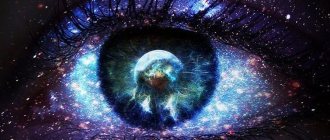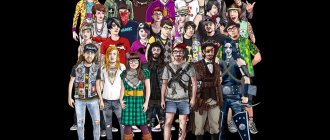Every society has a set of rules, assessments, principles and norms of behavior that are based on a historically established understanding of what is good, what is bad, and is not subject to criticism. This organization of life in society is called morality. For many people, this is synonymous with moral behavior.
Moral behavior
In psychology, this concept is considered not only in a collective, but also in an individual sense; morality is understood as the level of self-control of an individual.
How did morality appear, its essence
The term "morality" is of Latin origin. Literally translated, it means “character”, “custom”. Over the centuries since its appearance, its content has changed. The concept is based on the laws and traditions of the state. Changes in the social way of life and the evolutionary development of society entailed a transformation in the content of morality.
In modern society, this concept is used as a presentation of acceptable human actions. At the same time, legally established principles in relation to people with different citizenships in the territory of one country will operate differently. They treat “insiders” more leniently than strangers. The current legislation of the Russian Federation provides for the recovery of compensation from a citizen if he has caused moral damage to someone.
In addition, society has a class stratification; different rules and norms of behavior prevail in its different layers. By identifying himself with a particular social group, a person accepts its legal principles. He develops a sense of responsibility for his actions, empathy, guilt, and repentance.
Research reports regarding the emergence and development of morality in humans can be combined into 3 approaches:
- The cognitive approach is based on the confidence of scientists that morality goes through several stages in its development and is correlated with the age periodization of development. The founders of this approach were J. Piaget, L. Kohlberg, E. Turiel.
- The biological approach connects morality with the development of the psyche. A small child is not yet able to understand moral rules and analyze the behavior of others. An adult whose mental functions have reached their maximum, observing this or that behavior of people, can say with confidence whether it is moral or not. Proponents of this approach were D. Haidt and M. Hoffman.
- The psychoanalytic approach explains the child’s ability to follow the rules for the development of feelings of guilt and shame. The founder of this approach is S. Freud.
Feelings of guilt and shame
Attention! Moral norms differ in different countries. Their content is determined by nationality, value guidelines of residents and the desire of state authorities to protect the quiet life of citizens.
Moral values and their role in modern society
The current situation is characterized by the fact that the process of globalization is taking place everywhere, the formation of an integral world social system, the destruction of the “old” one, while there is an obvious absence of “new” morality - the moral values of a single humanity. The value structure of society is extremely complex, and its elements influence the dynamics of social development in different ways - either consolidate social processes or revolutionize them.
Morality in public life is one of the ways and means of adapting individuals to life in society and connecting individual freedom with social necessity, as well as responsibility, resolving the contradiction between them. Historically, morality is primary in the process of human socialization. It enters the inner world of a person, and for its functioning, a person’s own power over himself is sufficient. The essence of morality is that people are aware of the need for their behavior, which corresponds to a certain social behavioral type, while they rely on personal beliefs and public opinion.
Morality can be defined as a special form of normative-evaluative orientation of people in society and as the most important form of public will. Feelings of duty, conscience, and honor are formed in society, and through social relations they become the property of a person in the process of socialization and internalization. Morality regulates the behavior and consciousness of people in all spheres of life - economic, political, social and spiritual; it is determined in a certain way by the type of society.
The foundations of morality belong to the era of the tribal social system. This period is characterized by the power of nature, sensory experience, the peculiarity of conceptual thinking and the comprehension of reality in a fantastic way. There are various types of magic, totemism, fetishism, a system of prohibitions, certain rites, rituals, mythology[1]. It is generally accepted that consanguinity was an organizational and normative principle in primitive society.
Primitive thinking was irrational and based on fiction and superstition. In modern language, the mentality of that period can be characterized by such concepts as “collective conscience”, “collective unconscious”. All this is understood as a set of feelings and ideas inherent in all members of a given community. C. Jung described the archaic psyche very interestingly. “The archaic psyche is a collective psyche, a transpersonal soul, quite real and endowed with divine, creative energy, which is incomparable with the “humiliated soul” of modern man”[2]. Community norms of behavior in this society fostered collectivism and solidarity. Here we can talk about mechanical solidarity that exists between people. In primitive society there was neither religious morality nor basic moral standards. They appeared towards the end of the tribal system, towards the period of patriarchy. Then primitive moral norms emerge: a ban on cannibalism and incest, obedience to elders, decent work. These moral norms carried out normative regulation, as if they had been issued by a certain state institution. Although “the moral demands of clan society were ensured not only by public opinion, as well as individual consciousness, but also to a large extent by the activities of clan and tribal institutions (clan councils, tribal meetings, councils of elders)”[3].
New moral standards emerged in a patriarchal society. The role of the man’s authority as the head of the family, wife’s fidelity, the prohibition on lying, and blood feud have strengthened. This period is characterized by the identity of the moral norm with the ordinary norm. The system of prohibitions (taboo) is very important. They are the ones who shape the consciousness and will of individuals. The archaic idea of justice is spreading - talion - the principle of equal retribution, blood feud. This custom is characteristic of “all peoples at the stage of their tribal primitive level of development, which does not allow them to enter into relations of domination and subordination”[4]. Mature communal-tribal relations led to the emergence of a class state, and although this system was based on a communal traditional way of life, it fought with all its might and supplanted it. State institutions appear, they are outside the community and above it, the most ancient codes of laws arise - the laws of Hammurabi, the king of Babylon (II BC), the laws of Manu (I century BC) and others.
I will focus on the laws of Hammurabi. They date back to the era of the early slave system and differ from the religious and ethical norms of the communal patriarchal system. Essentially, this is already a set of property, family and criminal law. The main place is occupied by transactions with property (“buy”, “sell”, “exchange”, etc.) and then actions that violate property rights (“steal”, “rob”, etc.).
Trespassing on private property and theft are prohibited by law and punishable by death[5]. The law defines family relations (marriage and divorce, recognition of paternity, remarriage, etc.). The laws provided for death for theft, for lying, if it was not proven in court. Another punishment was self-mutilation (cutting of ears, fingers, etc.). Conflicts were resolved through talion. Obviously, at that time there were no universal imperatives, no abstract moral values, and there was no individual moral motivation, although many moral norms (prohibitions) of the communal way of life were transferred to the legal code and religious provisions. Class slave-owning morality is different - it is based on the ideas of law.
The process of individualization of the social existence of isolated individuals from the clan community led to a change in consciousness as a form of social regulation. New norms were needed that would affirm the individual as an independent subject of action. And this became the golden rule of morality: act towards others as you would like them to act towards you. The Golden Rule has been mentioned since the 6th–5th centuries. BC e. It is in ancient Indian culture, in the Gospel of Matthew, in the teachings of Confucius: “What you do not want, do not do to others.” The Golden Rule has become widespread since early class society. It exists in the history of ethical thought; it was mainly mentioned as a requirement of everyday morality, and not as an ethical principle.
Morality is humanity, a worthy attitude towards another person, this is the primary, most elementary human attitude that precedes all others.
A qualitative change in European morality and culture occurred in the modern era. It was the Declaration of the Rights of Man and the Citizen of 1789 that declared that only the rights and freedoms of another person determine the boundaries of what a person should and should not do. This is not just abstract moral principles or religious fantasies, but a real declaration that a person’s moral duty is to independently build his own life, without violating the rights of others.
The content of human rights and freedoms had very important principles - those that corresponded to universal human moral requirements. These are the principles of human freedom, non-violence, personal self-determination, non-interference in private life, inviolability of private property, tolerance and others. In the works of T. Hobbes, J. Locke, J. J. Rousseau, they were discussed and proclaimed the highest moral standards, although during this period people’s subjective ideas about good, evil, justice, etc. began to be distinguished. Thus, the principle of freedom of conscience and religion is endowed with the property of objectivity and universality and is considered as a reflection of the natural order of things. The basis of moral relations in a democratic society is the equality of people.
For I. Kant, it is freedom and equality that are the defining features of the content of the categorical imperative: “Act in such a way that you always treat a person, both in your own person and in the person of anyone else, in the same way as a goal, and never treat him only as a means"[6].
Significant changes in morality and ethics are taking place in capitalist society, especially at the present stage of its development. If in pre-capitalist societies morality plays a vital role in the formation of man, then capitalism with its market relations, thirst for profit and wealth is characterized by moral decline, is immoral and dehumanized.
K. Marx and F. Engels very accurately and colorfully characterized capitalism: “The bourgeoisie, wherever it has achieved dominance, has destroyed all feudal, patriarchal, idyllic relations. She mercilessly tore off the motley feudal shackles that tied man to his “natural overlords,” and left no other connection between people except bare interest, heartless “purity” [7].
The unbridled desire for profit turns into greed and leads to the deformation of human relations and human goals in a capitalist society. This situation leads to a breakdown of ties between people, leads to isolation and individualism, immorality and crime, to a deepening of the split between rich and poor in different countries.
In pursuit of profit, transnational corporations in poor countries hold back modernization, do not comply with safety regulations, use child labor, and ignore the social problems of the countries where they make profits. The main thing for entrepreneurs is to gain wealth and succeed in competition. For this they sacrifice morality, and only legal law regulates business relations. But these legal laws often lag behind life, and entrepreneurs act at their own discretion, although moral norms, which are unwritten, react to practical problems faster than legal laws, but they are not taken into account by entrepreneurs.
It is safe to say that modern capitalist society tends to erode moral values and dehumanize people.
The spiritual essence of morality is manifested in a certain orientation of a person and social groups of society towards specific moral values and norms. And from here follow the corresponding actions and behavior of people. The peculiarity of moral norms is that they are not enshrined in state institutions and are not state norms, like legal ones. They are carried out because this is a person’s internal image of himself, and the assessment of this behavior by others is approval or condemnation. Without morality, the life of society is impossible.
There are many ways to justify morality. I will note just a few: utilitarianism, absolutism, naturalism, cosmism.
Utilitarianism assumes that moral values are distinguished from external social goods. Moral activity is justified if it leads to the happiness of people. The prerequisite for the emergence of this theory was early capitalism with its development of productive forces and the rise of consumption to a higher level.
Absolutist concepts are derived from an authoritative external source, such as God. Thus, I. Kant in the “Critique of Practical Reason” writes about God and the immortality of the soul. He accepts them as postulates for the implementation of moral actions, although the main, reliable and only criterion for Kant remains reason.
Naturalism involves deriving morality from the natural qualities of an individual - from the organizational features of the human psyche, or from the basic instincts that are inherent in all living organisms.
The representative of evolutionist ethics was P. A. Kropotkin. He believed that moral norms, such as justice, arise as a borrowing from the experience of animals. Primitive man, dependent on nature, saw the behavior of animals that do not kill each other, but provide support, and did the same.
For cosmism it is obvious that the evolution of morality is connected with the development of the cosmos. The influence of cosmic forces contributes to the manifestation of human spirituality and morality.
All these concepts do not provide a clear answer to the rationale for the emergence of morality and its understanding as the public will and the core of man. Although, probably, as a result of a very long historical practice, along with the formation of social needs in the process of activity and the preservation of the integrity of human existence, moral values are also formed. People follow them, and for them these values currently appear not as prohibitions, but as a matter of course.
Almost always, the prescriptions of moral norms are expressed in the imperative mood: “do not kill,” “live your life unnoticed,” etc. Moral norms are also characterized by the fact that they require certain behavior, and do not simply convince or teach to act in a certain way. We can talk about individual moral norms, for example, the ethics of a doctor, or about universal norms that apply to every person. These can be categorical norms that always apply (the norms of Christian morality), or norms that must be followed by people in certain situations.
What is the source of moral standards? They can be customs, traditions and even authority, that is, the person himself (Socrates, Jesus Christ, Mohammed, etc.). Material, objective conditions are also sources of morality if they gave rise to moral norms. Ethics emphasizes that moral norms have objective meaning, that is, they do not depend on arbitrariness or objective opinion. On the other hand, the requirements and prescriptions contained in moral norms are biased by their nature. They were, after all, an expression of the will of certain social groups or of God in religious ethics, and even personal motives could be the source of the norm.
We can say that a norm at first looks like an external one, like a prescription for a person, but it becomes moral only when this prescription is realized by a person and becomes his internal, his subjective necessity, his will.
In their objective essence, moral norms are a specific form of coordination of human freedom and will with general needs, interests, with the will and interests of other communities, other subjects. These can be classes, groups, social strata, etc. They are relative, but at the same time, moral norms are expressed in a universal form. Every moral norm passes the test of universality, I. Kant argued.
Specifically, moral norms appear as typical standards of behavior of people in a certain environment, and they change in the process of historical development. Moral norms exist not only in moral consciousness, they are objectified in actions, moral qualities of a person, moral positions and relationships of people.
Human behavior is primarily motivated by natural and social needs and the specific circumstances of the individual. Socio-natural reality is the beginning of human behavior. But there is another reality - morality, moral necessity. It acts as certain restrictions for a person, carried out either at his own will or at the will of the collective (in primitive society.)
If we summarize the features of moral norms, they come down to the following. Moral standards always encourage goodness. They are the result of good will, independently accepted by a person. The choice of moral norms is not determined by their usefulness, but on the contrary, norms guide a person and help him set or choose goals. The norms dictate certain prohibitions, but at the same time they oblige people to live together. And finally, a person sets moral standards for himself and follows them.
It is obvious that the community of people establishes moral standards and, as a rule, fulfills them themselves. It is absolutely true that morality is a social principle in man; it binds people together before all other connections[8].
Moral values include good, evil, love, justice, duty, responsibility, conscience, shame, etc. All of them have different purposes in the language of morality and fix different aspects of morality. Thus, goodness is focused on the value-normative aspect of the content of morality, and conscience and shame indicate spiritual and psychological mechanisms and methods that regulate the behavior of an individual. Conscience occupies a special place in the system of moral values.
Morality is not a set of ready-made rules that fit every occasion. A person has something that dictates him to act “according to his conscience” in a certain situation. Imposing sanctions on oneself is conscience. But probably not every person has this moral basis. Therefore, say, a heroic act may not happen (throwing into the fire and saving a child) if there is no “should” requirement within oneself.
Conscience in the “New Philosophical Encyclopedia” is defined “as a person’s ability, critically assessing himself, to realize and experience his inconsistency with what he should have - failure to fulfill his duty”[9].
The higher the measure of social development of an individual, his social activity, the greater the role conscience plays in his life.
Conscience is a special spiritual ability of a person, a special mechanism responsible for maintaining moral qualities and human behavior. Quite rightly, conscience is considered the core of a person, and its absence leads to collapse, deforms relationships between people, leads to the destruction of the entire system of moral values, a spiritual crisis.
In the 21st century In connection with globalization, proposals are made to build a moral system of world coexistence of all states, to establish a new world order, which proclaims the idea of “globalization humanism”, “primary globalization of morality”, norms of behavior, and ideals. We are talking about a kind of social conscience, to which everyone should be involved[10].
Such arguments about a unified new morality are absurd. Over its long history, humanity has developed moral values and universal human norms. If you follow them, if you identify them with everyone, and do not destroy them, do not alienate them from a person, as is happening today in post-industrial society, then you can free the individual from the shackles of immorality.
It can be argued that a person is such to the extent that he has a moral principle. Is it possible to teach moral values and norms? There are no teachers of morality, since it is not a specialized form of activity. However, the church is successfully doing this. It is quite obvious that modern Russian society needs moral education, because the moral standards of people's behavior have sharply decreased.
Of course, a person can be taught moral values and standards. He cannot help but live a meaningful life. After all, no one can give meaning to a person’s life except himself. Therefore, when setting the direction of his life, an individual takes into account the intellectual and practical experience of the people around him, as well as moral experience, and only the person himself is responsible for what he has chosen.
All properties, qualities, characteristics set by public moral education only give results when they pass “through” the person himself and are developed by him in the process of individual and social development.
[1] Analysis of archaic culture and morality is contained in the works of famous authors: Zolotarev AM Tribal system and primitive mythology. – M., 1964; Lévi-Strauss K. Primitive thinking. – M., 1994, etc.
[2] See: Jung K. Archaic man / K. Jung // Problems of the soul of our time. – M., 1994.
[3] Valeev D. Zh. Origin of morality. – Saratov, 1981. – P. 138.
[4] Guseinov A. A. Social nature of morality. – M., 1974. – P. 64–65.
[5] Reader on the history of the Ancient East / ed. M. A. Korostovtseva. – M., 1980.
[6] Kant I. Works: in 6 volumes – volume 4. – part 1. – M., 1965. – P. 270.
[7] Marx K., Engels F. Manifesto of the Communist Party / K. Marx, F. Engels // Op. – vol. 4. – P. 426.
[8] See: Ethics: textbook / under general. ed. A. A. Guseinova, E. L. Dubko. – M.: Gardariki, 1999. – P. 383–391.
[9] New philosophical encyclopedia: in 4 volumes / ed. V. S. Stepina, A. A. Guseinova and others - M.: Mysl, 2010. - P. 585.
[10] See: Kazmin A.K. Philosophical problems of the concept of human evolution // Bulletin of the Russian Federal District. – 2004. – No. 3. – P. 104–105.
Definition of morality in different sciences
Fear of heights - what is the name of the phobia?
Sciences that study human behavior, law and laws, and the characteristics of different segments of the population offer different interpretations of moral teachings. However, all these definitions are similar in that morality is a person’s assessment of his actions from the point of view of their correctness or incorrectness.
Important! In different societies, the attitude towards the same act may be different, because morality and morality of an individual are conditional characteristics.
The first science in which researchers began to wonder what morality is was philosophy. The author of the term “morality” is Cicero. Ancient philosophers identified it with ethical principles of behavior.
Physiologists and biologists have established that a separate cognitive system is not formed in the human brain at the moment of thinking about moral issues. Solving questions related to moral choice activates the neural regions of the brain that are responsible for a person’s explanation of the intentions of other people. These same parts of the brain are responsible for a person’s understanding of social emotions. Based on this, the researchers concluded that morality is involved in the emergence of mutual understanding between people. The physiological development of a part of the brain also explains the formation of the moral foundations of a person in the process of growing up.
Psychologists, answering the question of what morality means, associate it with a person’s personal development, with the emergence of his ability to empathize with others, analyze his own and others’ behavior. From the point of view of psychology, the formation of morality is impossible without education. Norms and values are formed in the family. It is here that the experience of moral behavior must be passed on from one generation to another.
Important! In philosophy, morality is ethics. Physiology has proven that morality is a result of brain development. In psychology, the concept of morality is associated with a high level of education.
High education
Principles of morality
The principles of morality are the starting point on the basis of which all ethics, all moral behavior of a person (humanity, justice, kindness, tolerance, etc.) are built.
There are principles of morality in addition to certain moral standards, such as “don’t steal” or “be merciful.” They are special in that they define more general formulas from which all other specific moral laws can be derived. They represent ideological attitudes that, on the basis of moral experience, consolidate the moral role of humanity, the so-called virtue. High moral principles develop as a result of family upbringing and in the learning process. Together they lead to the understanding and perception of such character traits as humanity, justice and rationality.
The ways and means of implementing any of all moral principles are very different and depend on the personal qualities of the individual, national and religious traditions, established in society and specific life situations. The most extensive and widely used are 5 principles: humanism, mutual respect, rationalism, courage and honor.
✔️ Humanism is one of the main principles of morality. These are positive qualities that represent a conscientious, benevolent and selfless approach to the people around us and to all living things in nature. A person is a being endowed with spirituality and intelligence, and in any, even the most difficult situation, he is obliged to remain a person in accordance with the high moral level of his development. Humanism is formed from daily selfless actions, support from loved ones, mutual assistance and the ability to compromise in controversial situations. Humanism is an act of goodwill that is based on full understanding, trust and mutual respect.
✔️ Mutual respect is a respectful and polite attitude towards the world around us, as if it were magic or a valuable gift. Such a law prescribes to treat people and the world around us with gratitude. Mutual respect is associated with such qualities as respect, kindness, and gratitude.
✔️ Rationalism is action based on moral experience. It contains principles such as wisdom and logic. Rationality, on the one hand, is the actions of reason, given to the individual from birth, and on the other hand, actions that correspond to experience and a system of moral values.
✔️ Courage and honor are categories that mean an individual’s ability to overcome difficult life obstacles and fears without losing a sense of dignity and respect for others. They are strongly interconnected and are based on the foundation of responsibility, commitment and perseverance.
Moral principles must be constantly present in human behavior to strengthen the moral spirit.
Having understood what moral principles there are, we can move on to studying moral norms.
Norms and principles of morality
Moral norms are regulators of people’s behavior in all types of social life: at home, in the family, at work, in communication with friends. Morality extends to relations between groups within the same society, as well as to relations between states. Through the condemnation of illegal actions by members of society, specialized control over compliance with the norms and rules of interaction is implemented. Internally, moral behavior is controlled by a person’s conscience.
Apiphobia - what kind of disorder is it?
Moral standards can be compared to a scale for assessing the legal, political and aesthetic actions of an individual. You can understand how life in a society is morally organized if you become familiar with the peculiarities of public administration in it, its traditions and forms of expression of public opinion.
However, compliance with moral standards is not always the result of good upbringing, the formation of moral patterns of behavior in a person. A person can control his behavior and actions out of fear of punishment. Violation of moral standards entails responsibility and sanctions.
Additional Information. Moral standards are not just customs and traditions. They have an ideological basis in the human mind. Guided by them, a person not only decides what to do in a given situation, he has ideas about the admissibility and impermissibility of this or that behavior in general.
Moral principles are briefly formulated basic moral requirements of society. They guide people's behavior and act simultaneously on all members of society. Through them, a national culture is formed. The basic moral principles include:
- The principle of humanism, according to which man is the most important value;
- The principle of altruism, requiring selfless service to loved ones;
- The principle of mercy says that love should be compassionate and active, a loving person should be ready to help a loved one;
- The principle of collectivism speaks of nurturing a person’s need to contribute to the achievement of a common goal;
- The principle of renouncing individualism means prohibiting the opposition of an individual to a group, condemning egoism;
- The principle of consciousness reflects how thoughtful a person is about his actions.
Important! Moral principles are criteria for the education of citizens.
Upbringing
Moral assessment
A person’s conscious activity is determined by intentions and actions that can be justified and their moral value identified through moral assessment.
Moral evaluation allows you to express an opinion that reflects approval or disapproval of human actions.
In the sphere of moral relations, moral assessment plays the role of moral sanction. Moral assessment is capable of endowing certain social phenomena with valuable properties and creating a certain social significance.
The purpose of morality in human life
Morality permeates the whole life of a person. This is explained by the fact that in everyday life an individual interacts with different people. People depend on each other and have a need for social interaction and communication. One person cannot achieve high results, but when working in a team, he feels his contribution to the common cause. In order for people, working together, to maintain a respectful attitude towards each other, it was decided to introduce rules of life in society that are equivalent to moral principles. Their elements are:
- Moral consciousness;
- Moral activity;
- Highly moral relationships.
Obsessive movement syndrome in a child
What does it mean to “behave morally”? This means subordinating your actions to social ethical patterns. Regulating the actions of one person is a manifestation of the collective will of society. Ideals of social behavior are the result of people’s attempts to reconcile the interests of one individual and the positions of society.
Attention! Morality is not a specially organized activity, unlike such phenomena of social life as art, religion, and science. Today there are no institutions that would regulate the development of morality. The efforts and resources that are provided for the development of science and art are not invested in the development of morality. This is the paradoxical meaning of morality: it is elusive, but all-encompassing.
Morality performs such functions as regulatory, evaluative, educational, controlling, integrating.
Regulatory function
This is the main function of morality. This includes identifying signs of acceptable behavior and self-control of an individual’s actions.
Evaluation function
Morality divides all social phenomena into characteristic groups: good and bad. Examples of such a division can be mercy, help, mutual assistance, assessed by people as positive manifestations of personality; theft, deception, meanness, considered as harm and immoral behavior.
Note. If a person is able to evaluate this or that phenomenon, it means that he has formed the moral foundations of his worldview.
Assessment is an indicator of developed morality
Educational function
Morality is formed through educational influences. By adopting patterns of behavior from older generations, younger generations learn the laws of life in society. Education allows you to combine public and personal interests in a person. The main task of education is to teach a person to achieve his goal without infringing on the interests of other people.
Control function
This function instructs morality to monitor the implementation of norms and rules of behavior in society. The ways to implement this function are condemnation, sanctions and conscience.
Integrating function
This function calls for morality to establish unity between humanity in general and the spiritual world of the individual in particular.
Basic principles
The morality of Modern society is based on simple principles:
1) Everything is permitted that does not directly violate the rights of other people.
2) The rights of all people are equal.
These principles stem from those trends described in the section "Progress of Morals." Since the main slogan of Modern society is “maximum happiness for the maximum number of people,” moral standards should not be an obstacle to the realization of the desires of a particular person - even if someone does not like these desires. But only as long as they do not harm other people.
It should be noted that from these two principles comes the third: “Be energetic, achieve success on your own.” After all, every person strives for personal success, and the greatest freedom provides the maximum opportunity for this (see the subsection “Commandments of Modern Society”).
Obviously, the need for decency follows from these principles. For example, deceiving another person is, as a rule, causing him harm, and therefore is condemned by Modern morality.
The morality of Modern society was described in a light and cheerful tone by Alexander Nikonov in the corresponding chapter of the book “Monkey Upgrade”:
From all today's morality, tomorrow there will be only one rule left: you can do whatever you want without directly infringing on the interests of others. The key word here is “directly”.
If a person walks naked on the street or has sex in a public place, then, from the point of view of modernity, he is immoral. And from the point of view of tomorrow, the one who pesters him with the demand to “behave decently” is immoral. A naked man does not directly encroach on anyone’s interests, he simply goes about his business, that is, he is in his own right. Now, if he forcibly undressed others, he would be directly encroaching on their interests. And the fact that it is unpleasant for you to see a naked person on the street is the problem of your complexes, fight them. He doesn’t order you to undress, so why are you pestering him to get dressed?
You cannot directly encroach on the lives of others: life, health, property, freedom - these are the minimum requirements.
Live as you know, and don’t meddle in someone else’s life if they don’t ask - this is the main rule of morality for tomorrow. It can also be formulated as follows: “You cannot decide for others. Decide for yourself." This largely works in the most progressive countries now. Somewhere this rule of extreme individualism works more (Netherlands, Denmark, Sweden), somewhere less. In advanced countries, “immoral” marriages between homosexuals are allowed, prostitution, smoking marijuana, etc. are legalized. There, a person has the right to manage his own life as he pleases. Jurisprudence is also developing in the same direction. Laws are drifting in the direction indicated by the thesis “no victims, no crime.”
...You know, I’m not a fool at all, I understand perfectly well that by applying cunning theoretical reasoning and bringing this already implemented principle of relationships between adults to the point of absurdity, it is probably possible to find a number of controversial borderline situations. (“And when they blow smoke in your face, is it a direct or indirect effect?”)
I admit that some issues may arise in the state-citizen relationship. (“And if I exceeded the speed limit and didn’t run over anyone, there were no injuries, that means there was no crime?”)
But the principles I declare are not the final goal, but a trend, a direction in the movement of social morality and legal practice.
Lawyers reading this book will probably be drawn to the keyword “directly.” Lawyers generally like to cling to words, forgetting about Gödel’s theorem, according to which all words cannot be defined anyway. And, therefore, there will always remain legal uncertainty, immanently inherent in the language system.
“And if a person walks naked down the street, violating public morals, he directly affects my eyes, and I don’t like it!”
Nikolai Kozlov, the author of numerous books on practical psychology, explains very instructively the question of what is direct and what is indirect. Kozlov is considered by current first-year psychology students to be the third greatest psychologist in the world after Freud and Jung. And for good reason. Nikolai Kozlov created a new movement of practical psychology and a whole network of psychological clubs throughout the country. These clubs are good and correct, which can be judged if only because the Russian Orthodox Church is actively fighting against them... So, when Kozlov is asked at workshops how direct impact differs from indirect impact, he answers with a nursery rhyme: “The cat is crying in the corridor, She has great grief, Evil people don’t let her poor pussy steal her sausages.”
People influence poor pussy? Undoubtedly! Pussy can even assume that they influence directly. But in fact, people just have their sausages. Just having sausages isn’t an invasion of someone else’s privacy, is it? As well as…
- just have property (or not);
- just live (or not live);
- just walk the streets (naked or clothed).
Don't pry into someone else's personal life, gentlemen, even if you actively don't like it. And don’t do to others what you don’t want for yourself. And if you suddenly want to do something that, in your opinion, will improve a person’s life, first find out from him whether your opinions about life and its improvements coincide. And never appeal to morality in your reasoning: everyone has their own ideas about morality.
If we open the “Big Encyclopedic Dictionary” and look at the article “Morality”, we will see the following description: “Morality - see morality.” The time has come to separate these concepts. Separate the wheat from the chaff.
Morality is the sum of unwritten standards of behavior established in society, a collection of social prejudices. Morality is closer to the word "decency". Morality is more difficult to define. It is closer to the biological concept of empathy; to such a concept of religion as forgiveness; to such a concept of social life as conformism; to such a concept of psychology as non-conflict. Simply put, if a person internally sympathizes, empathizes with another person and, in connection with this, tries not to do to another what he would not like for himself, if a person is internally non-aggressive, wise and therefore understanding, we can say that he is a moral person.
The main difference between morality and ethics is that morality always presupposes an external evaluative object: social morality - society, the crowd, neighbors; religious morality - God. And morality is internal self-control. A moral person is deeper and more complex than a moral person. Just like an automatically operating unit is more complex than a manual machine, which is driven by someone else’s will.
Walking naked on the streets is immoral. Splashing with saliva, yelling at a naked person that he is a scoundrel is immoral. Feel the difference.
The world is moving towards immorality, it is true. But he goes towards morality.
Morality is a subtle, situational thing. Morality is more formal. It can be reduced to certain rules and prohibitions.
Morals and ethics
Morality and ethics have certain similarities. They also have different features. The main differences between ethics and morality are as follows:
- Ethics has long been a science that contains ideal examples of social behavior. Morality is not a science, it is a side of people's real social life.
- Ethics answers the question “How should a person behave?” Morality answers the question: “Why should a person follow the rules and norms of behavior?”
- Ethics is a broader concept. Morality is the subject of the study of ethics.
- The content of ethics is relatively constant, while the content of morality changes along with socio-economic changes in society.
Additional Information. Today, ethics is recognized as a practical version of philosophy, one of the sections of which is devoted to the study of the moral system of social behavior.
Education of moral qualities
What is good and what is bad begins to tell us from a very early age.
The education of moral qualities (in fact, this is socialization) is carried out not only by parents, but also by other significant adults - grandparents, aunts, uncles, educators, teachers. Also, even friends, classmates and society as a whole participate in this.
How does this happen:
- through personal example (dad led grandmother across the road);
- moral teaching (lectures and instructions);
- literature. Let's take the same fables. Each of them explains how to and how not to behave, and ridicules human vices through allegory (a literary device). An allegory is an allegory.
For example, in the fable about the dragonfly and the ant, the first is the personification (what is this?) of idleness, laziness, irresponsibility, and the second is hard work. Having heard this story, the child understands that being lazy is bad, working is good;
- good films, cartoons, music;
- creating a positive experience for the child (give way to the girl, share).
The importance of morality in human society
For the life of a modern person, the meaning of morality is determining the way of interacting with people. The ethical conditions for joint activities are justified by the need for mutual respect between people in the team.
A person cannot live outside of society. For successful socialization and the opportunity to be useful, he must obey the norms and rules of group interaction. When a person is faced with a moral choice, he must always think about how his loved ones will react to his action.
The role of morality in society
Types of moral standards
There are several types of moral standards:
- Related to the safety of life - a ban on killing a person or animal.
- Concepts of honor and dignity.
- Privacy Policy.
- About independence and basic personal freedoms.
- Related to trust.
- Ideas about justice.
- Relating to social conflicts.
- Ethical principles formulated in the form of recommendations.
- There is a separate group that regulates what moral norms there are and the procedure for their application.
Development of moral standards
Researchers claim that the age of the rules governing relationships is approximately equal to the age of humanity. The following forms arose in the clan system.
- Taboo. Places strict restrictions on erotic and aggressive actions towards certain objects. It is reinforced by the fear of punishment from mystical forces.
- Custom. Applies to members of a group that has historically established rules. Gives a person strict instructions, leaving no freedom of action, and is supported by public opinion.
- Tradition. A stable type of custom maintained by many generations of people. Forms of behavior also do not require thinking; they must be strictly followed.
With the decomposition of the tribal system, a moral principle appeared - concentrated and generalized norms regulating a person’s worldview and behavior in different spheres of life. They apply to all people, give a person a guideline and leave him the opportunity for self-determination.
Support comes from the concepts of good and evil and the influence of public opinion.









